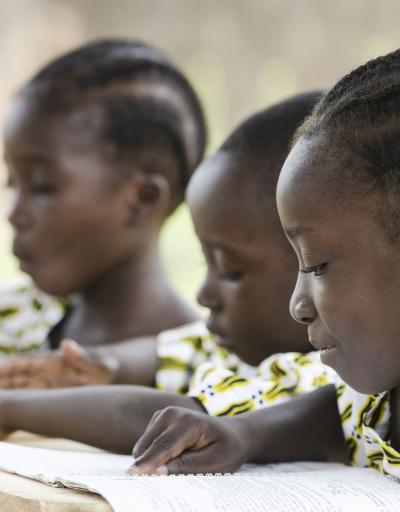
Supporting countries in reviewing and developing education legal and policy frameworks

UNESCO develops and monitors education norms and standards in order to foster the implementation of the right to education at country level. The right to education can only be availed by beneficiaries through concrete implementation and effective enforcement, a responsibility that lies with states.
As the COVID-19 pandemic has shown, strong national legal and policy frameworks that lay the foundation and conditions for the delivery and sustainability of free, inclusive, equitable and quality education in all contexts are essential for the effective implementation and enforcement of this key human right.
To ensure implementation, UNESCO provides support to Member States to translate their legal obligations and political commitments on the right to education in national frameworks including through conducting research and knowledge-sharing on how to apply the specific components of this right.
UNESCO’s advisory services
In fulfilling its mandate, building on its monitoring of the right to education, UNESCO provides policy advice and technical assistance to Member States that seek to review, develop or reform their legal frameworks in this field.
UNESCO is well positioned to provide evidence-based assistance having pilot tested in 2010-2011, a law and policy review in the Arab States, with a focus on gender equality. This was done in an effort to sensitize countries about the importance of having rights-based, inclusive, gender sensitive education laws and to offer advice and recommendations in an effort to generate demand for law reform.
The Education 2030 Agenda and SDG4 provide a strategic opportunity for Member States to review and reform their national legal frameworks in line with international commitments and state legal obligations under standard-setting instruments to realize the right to education for all. As part of the UNESCO Capacity Development for Education Programme, selected least developed countries are assisted in their efforts to achieve SDG4 targets by reviewing their national legal framework relating to the right to education and recommending concrete action, notably through appropriate legislative reform. A synthesis report drawing on the findings of the initial 11 pilot countries reviewed was produced.
UNESCO tools and guidance
Member States are increasingly seeking ways and means to step up efforts to ensure their national systems and frameworks are aligned with international commitments and obligations in order to overcome challenges in the full implementation of the right to education and the realization of SDG 4.
UNESCO developed two unique publications:
- Right to education handbook builds knowledge on what constitutes the right to education, including the existing monitoring and accountability mechanisms, and
Guidelines to strengthen the right to education in national frameworks to guide states on how to concretely translate this right into constitutions, legislation and policies.
Conceived to be complementary, UNESCO has been rolling out these publications with the aim to enhance capacities on the right to education and provide practical guidance to Member States. Based on these, future training programmes on the right to education are envisaged.
Right to education handbook
UNESCO and the Right to Education Initiative produced the Right to education handbook, a key tool for those seeking to understand and advance that right by raising awareness and knowledge of the right to education (normative framework, states’ legal obligations, the various sources of law, what states must do to implement it, how to monitor it, and how to increase accountability). The Handbook provides a summary of current debates and issues from a human rights perspective and provides an overview of the UN landscape and its mechanisms, including the role of UNESCO.
Audience: Designed to be accessible, the Handbook was developed to assist all stakeholders (state officials, civil servants, policy-makers, parliamentarians, judges, magistrates, lawyers, civil society, etc.) who have a crucial role to play in the promotion and implementation of the right to education.

Guidelines to strengthen the right to education in national frameworks
Through a hands-on approach, the Guidelines, which capitalize on country experiences, aim to assist in the review of national education legal and policy frameworks by providing operational tools to assess the status of the right to education at country level and its compatibility with international and regional human rights obligations and international commitments (SDG 4). Tools are provided to identify legal and policy gaps in education at country level and resulting challenges, based on which recommendations are formulated for the full alignment of national constitutions, legislations and policies with international standards and provisions. The Guidelines also provide insights on how to implement the recommendations in view of necessary reforms.
Conceived as generic guidelines that can be adapted to local contexts, countries may use the Guidelines either as a whole or partially depending on national priorities and needs.
Audience: These Guidelines may be used by all relevant actors, such as local education groups, intergovernmental organizations and civil society organizations, although they are primarily intended for ministries of education.




